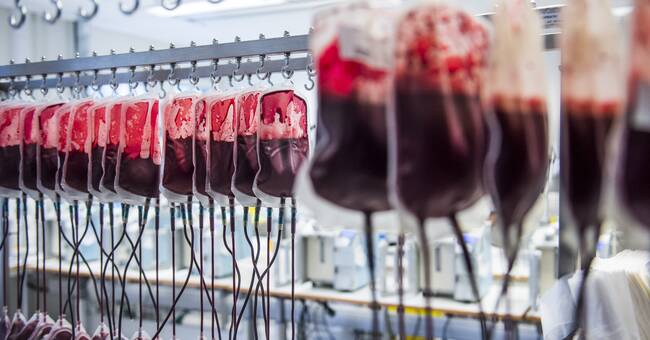A couple of years ago, I met a woman in Gothenburg who was infected with hepatitis C. She had contracted the virus in connection with a blood transfusion almost fifty years earlier.
She suffered both from the ravages of the virus in the liver and from the very feeling of having a chronic infection, an infection that often spreads between drug addicts who share a syringe.
As a virus carrier, she was obliged to inform dentists and other healthcare professionals about her infection.
The disease is creeping up
But now there was a new hope.
The woman had just started a treatment with a new medicine against the virus.
More than 70 million people have a chronic hepatitis C virus infection, according to an estimate from the World Health Organization.
The disease progresses slowly.
After several decades, it can cause cirrhosis of the liver.
The organ shrinks and hardens as scar tissue replaces healthy liver cells.
At the same time, the risk of liver cancer increases.
Viral infections in the liver have been known since the 1940s.
A couple of decades later, the hepatitis B virus was discovered, leading to diagnostic tests, vaccines and a Nobel Prize.
Blood banks spread viruses
But hepatitis continued to spread, not least from blood banks.
One of this year's winners, Harvey Alter, worked at a blood bank in the United States.
He noted that people who received a transfusion could suffer from hepatitis even if the blood they received was free of hepatitis B. The conclusion was that there must be another variant.
Michael Hougthon discovered such a variant in 1989: Hepatitis C. It was an important breakthrough and a great achievement given that the molecular biologists of the time lacked most of today's powerful tools.
As early as 2000, Alter and Houghton were awarded the Lasker Prize, an award given to several researchers who later became Nobel Laureates.
The fight against corona follows the same pattern
This year's third winner - Charles Rice - did not receive a Lasker Prize.
However, he shares this year's Nobel Prize for having finally established that Hepatitis C alone is a direct cause of the unexplained cases of liver disease after a blood transfusion.
In all research on infectious diseases, it is absolutely crucial to get a clear picture of the infectious agent.
This applies just as much in today's work to develop vaccines and medicines against the coronavirus as in the fight against Hepatitis C.
Was relieved in the soul
And in the case of hepatitis C, things have gone well.
A generation of drugs with uncertain effects and severe side effects has been replaced by drugs that cure 98 percent of all infections.
Doctors have begun to hope that it will be possible to actually eradicate hepatitis C. The World Health Organization aims to be able to remove hepatitis C from the list of global health threats by 2030.
This development is possible thanks to detailed knowledge of how the hepatitis C virus looks and works.
The woman in Gothenburg is an example of this.
A few weeks after our meeting, I called her to ask if the cure had worked.
It had it:
- I'm really relieved!
Really relieved, she said.

